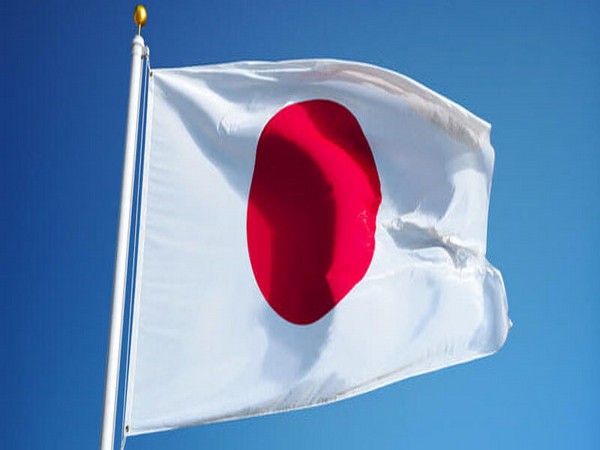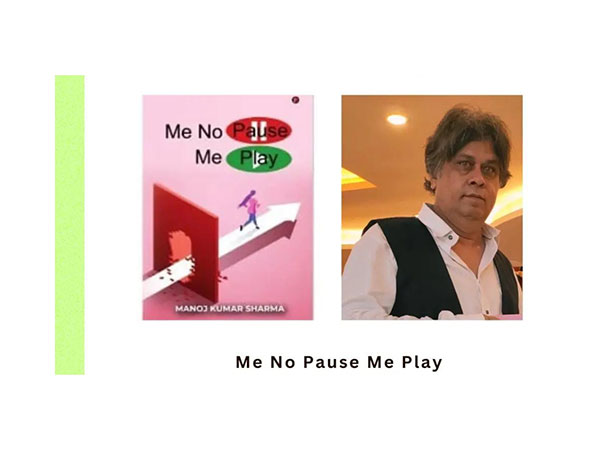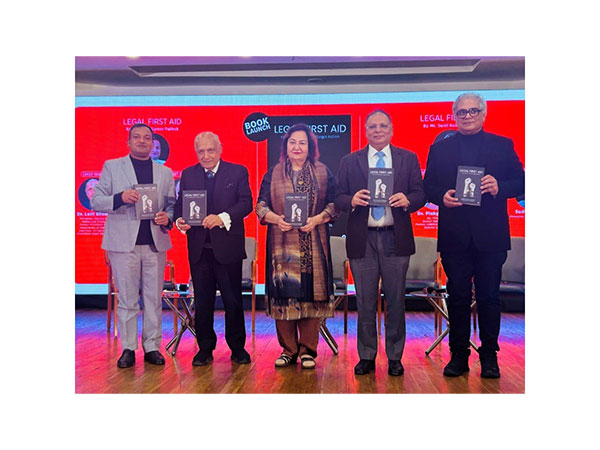Pacific Islands Forum chair confident in safety of Japan's release into ocean
Jul 14, 2023
Tokyo [Japan], July 14: The Pacific Islands Forum chair Mark Brown says the planned release of treated nuclear wastewater into the Pacific Ocean cannot be a breach of the Rarotonga Treaty as it's a controlled release and not a dump.
The Treaty commits the Pacific to be nuclear-free and bans the dumping of nuclear waste in the region.
"No, I don't think it would be in breach of the Treaty if it's well within the safety standards," Brown said.
Japan aims to gradually release 1.4 million tonnes of treated nuclear wastewater from the defunct Fukushima power plant over a period of 30-40 years.
And that time lag is pivotal in determining that it is a release rather than a dump.
Brown, who is also the Cook Islands Prime Minister, expressed his confidence in the UN Atomic Energy Agency's (IAEA) findings in its latest report which finds that Japan's plans meet international standards.
"What needs to be demonstrated to us is that what is going into the ocean is safe, and it's not going to damage our marine lifestyle environment or any aspects of the ocean," Brown said.
When asked if that has been demonstrated, he said: "No, because it hasn't been discharged. All we've got is a plan. And at this stage, Japan has yet to announce a date when they will implement this plan."
The plan is to treat the water, dilute it, test it and then release it over decades from a pipe about 1km off Japan's shore.
This project is happening in an effort to decommission the Fukushima Daiichi Nuclear Power Station that was destroyed after a tsunami hit reactors causing a meltdown and explosions in 2011.
Twelve years on the water being used to cool the plant is highly contaminated with harmful radionuclides and they are running out of space to store it.
Dumping a thing of the past
IAEA Director General Rafael Grossi explained from a technical standpoint why it is not a dump while he was in Rarotonga to meet with Brown and Pacific leaders.
"The word dumping is very strong. The dump has a connotation of disrespect, like 'I dump on your backyard'," he said.
He said dumping of contaminated wastewater in the world's seas occurred in the past but international legislation gradually came in to prevent the practice.
Grossi said dumping is an action completed without any control or international monitoring, but what Japan is doing is completely different.
"This activity, when it happens, is an activity that takes place under norms and rules, first of all of the country, that is doing it with appropriate national legislation, and appropriate health and environment controls, plus, international monitoring.
"So the difference is huge. Between saying that this is dumping, and this is a controlled discharge under national and international review and monitoring, so it's like, night and day," Grossi said.
The IAEA head said his scientists have concluded the plan is safe.
The Agency is to have a permanent presence at Fukushima for the next 40 years to independently test the water to ensure the Ocean is protected.
"We care for the ocean as much as they do, we care for our Mother Earth as much as they do. And we do it with a profound sense of responsibility because we do have an authority to do something about it," Grossi said.
But Grossi admitted there was still an air of 'what if?' lingering around the release.
He said he expected people would be worried but wanted to assure the world the plan and safety standards were constantly being reviewed to ensure safety.
"Let's forget for a minute about Japan or China or the Islands. There are 450 nuclear reactors in the world. Nobody wants a problem," Grossi said.
He said there was "perfect" monitoring and "clear" parameters that were respected whenever dilution was used for nuclear waste.
"This is the IAEA. Who could believe that the IAEA would agree, would condone, would be happy with a member state throwing radioactive water into the sea?
"This is completely unacceptable and goes against every conceivable norm. So what is going to go into the sea is not radioactive water, is not nuclear waste. Am I clear?" Grossi said.
Nevertheless, a fisherman in the Cook Islands is not convinced the plans by Japan are safe.
Troy Henderson said he has a lot of questions, given the Pacific Ocean is a vast, shared asset.
"We rely on it - that's our income, the tourists and the fishing and for the old locals, they've relied on the fish for generations and generations to provide for their families.
"You don't want to dump something in the ocean and pollute all the fish as there will be no fish for us," Henderson said.
An environmental organisation in the Cook Islands, the TeIpukarea Society, said Japan should provide more justification for their actions.
"If it's been deemed safe, why not consider transporting the diluted waste to Japanese agricultural sites and use it for irrigation?" its Director Alanna Matamaru Smith said.
PIF's next steps
The IAEA report has been sent to the Pacific Islands Forum Secretariat "for further dissemination".
"The leaders still have differing views and could well still have when they meet again," Brown said.
He did not provide many clues as to what would happen if the members could not come to a consensus but he did say the "last thing" the Forum would want was to remove Japan as a Dialogue Partner.
He also does not expect Japan to hold off on announcing a date or change its plans on account of the Pacific's collective voice.
"No, I don't think. Firstly, the concern is, is this safe?
"If it's safe, then it should be allowed to discharge water. And that's basically what the IAEA is trying to say. This report is identifying the safety concerns.
"They're saying that the proposed plan is well within the safety standards of the IAEA. Now, if that's the case, then there is nothing to stop Japan from carrying out what it's going to do, as long as it does not damage the ocean or the environment," Brown said.
Source: Fijian Broadcasting Cooperation








